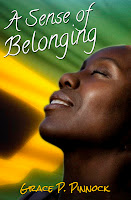Greetings to all,
In July 2012 John Terry (Professional footballer) was acquitted in a British court of racially abusing Anton Ferdinand (Professional footballer). Read judgement. (See BBC News - John Terry cleared of racism against Anton Ferdinand, Friday 13 July 2012).
As far as I am concerned, this case should never have been brought to court.
Why?
It is not going to make a scrap of difference in the behaviour of those who feel 'obliged' to verbally insult a person of colour for whatever reason, intended or not.
That's the first thing.
Next.
What I want to understand is, in light of the problems with racism in Professional Football, why oh why does a footballer of colour set himself up for an argument on what appeared to be a contentious issue? Could it not be seen, when one looked at the other, that the conflict would very likely end up with the verbalizing of an insulting racial comment regardless of the context?
I may have missed something here, but I think a good injection of commonsense was needed.
I have said before, and I will say it again, sometimes I wonder if the positive approaches used by my parents' generation to combat racial prejudice in the UK is being built on by those who succeeded them.
What do you mean by that? - you may ask.
It is quite simple.
In any racially charged environment, it is useful for a person of colour, (and the footballer of colour is no exception), to know when to speak, and when to shut up, who to ignore to avoid an argument, and when to walk away from the situation. Most of all, it is important to maintain a sense of humour, and positively and confidently affirm who one is, and make no apology for it. In other words, be the wiser man (or woman) and rise above the racial conflict quagmire.
In my view, going to court to settle an issue of a racial nature has its place if the facts of the case warrant. However, where it is evident that the odds are stacked against one being the victor, and the stage will be set for a very different play to the one expected, with an even more unexpected eye-popping ending, then all I can say is that the whole charade will be a waste of time and money. Moreover, it will do nothing for equality in race relations.
Nevertheless, smile, all is not lost.
Here is some advice for those not in the know.
Investing time, and even some money, to make oneself versed in the history of racism in the UK and Europe, could provide useful information to better 'position' oneself, and be more 'focused', when considering what response, action, reaction to give/not give, to start/not start or when to affirm oneself, in a racially sensitive situation/environment. What also may be of interest is the book:
'A Sense of Belonging' in which a British born Jamaican reflects on the early part of her life and experiences in the UK.
Copyright 2012 Grace P. Pinnock
The book 'A Sense of Belonging' by Grace P. Pinnock is available online at Amazon Books.
Why am I giving this advice?
What use is it?
Let me answer these questions with questions.
On the subject of offensive racial issues:
when insulted about one's skin colour, is the, 'get defensive approach', working?
Is it really believed that the powers that be in Professional Football in the UK will stamp out racism in the game?
I think enough time has been wasted waiting on something effective to happen in that regard. It is now time to get on with something that makes sense.
So, for a practical example of the above advice, and to get the gist of this post, please note the following.
My father, who is a peaceful, law -abiding, and respectful gentleman, told me his life story of living in England from 1958 to 1990. He emphasized how his work colleagues constantly 'discussed' and 'analysed' his skin colour, which is black (this is my delightful way of describing what was in fact continuous unprovoked racial insults!). Instead of getting on the defensive which would get him nowhere, but would certainly encourage his colleagues in their activity, he decided to take a novel approach, and made the following statement:
"I am glad I was born in Jamaica. I am glad I was born a black man. I am proud to be a Jamaican, and I will die a JAMAICAN".
According to my father, for some reason, from the moment he spoke those words, and during the rest of his working life, the 'black issue', was never raised again by his colleagues in any conversation.
Get the point?
I say to the footballers of colour in the UK, although at times it is challenging, stand firm on the principle of respect for others, move forward, waste no time with the racists, but strongly and proudly affirm who you are in spite of...your predecessors have been through this before. Keep the faith. You will surely overcome!
Blessings,
Grace


